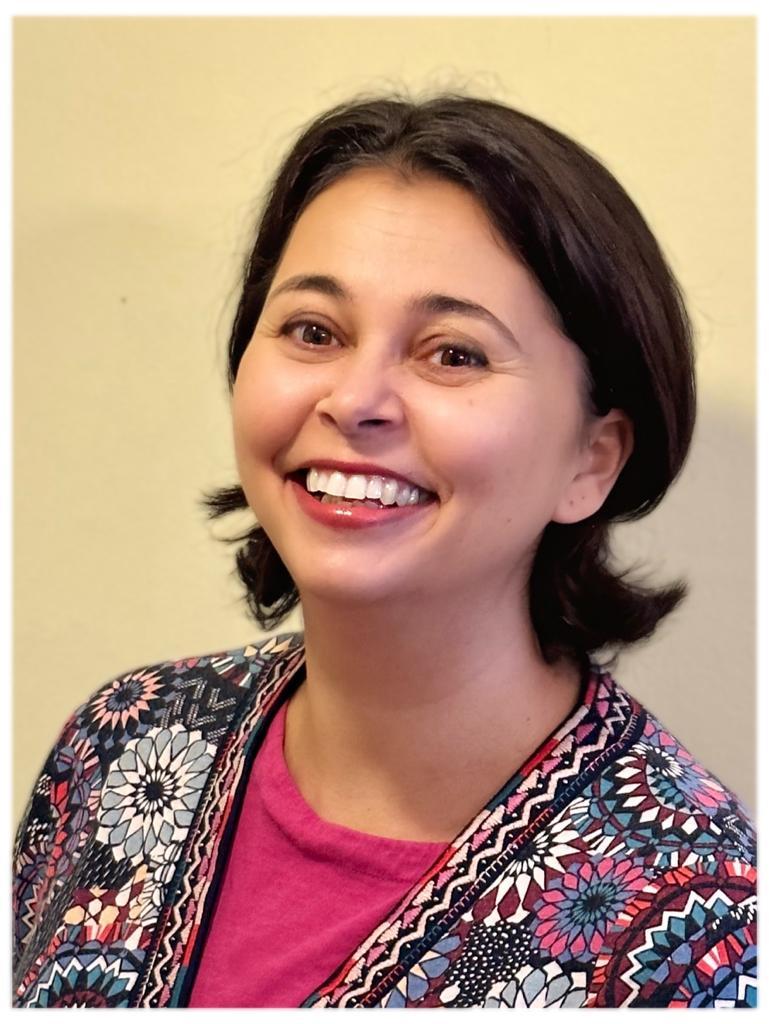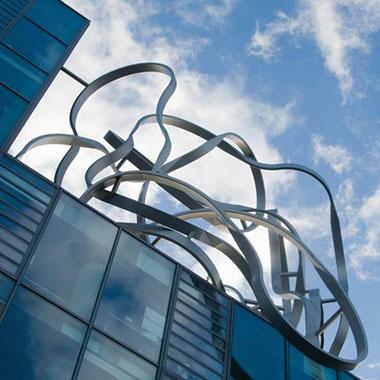MA
Computational Linguistics
Content navigation menu
Why study MA Computational Linguistics at Goldsmiths
Have you ever wondered how personal assistants like Siri and Alexa work, or how humans interact with chatbots and apps using natural language? Are you interested in how language is structured, what its social functions are, or how to build formal models of it? If so, then this programme is for you.
- Our interdisciplinary programme will enable you to acquire the theoretical understanding and practical skills you’ll need to succeed in the academic and professional fields of natural language processing and computational linguistics.
- The programme is based on an inter-departmental collaboration between the Department of Computing and the linguistics team at the Department of English and Creative Writing, giving you a chance to explore the fascinating relationship between language and technology.
- You’ll have access to modules that explore the core areas of language structure and meaning, the relationship between language, society and culture, linguistic analyses of text and speech, Natural Language Processing, core programming skills, Corpus Linguistics, as well as a further range of option modules available at the two departments.
- You’ll gain a solid understanding of how language technologies can be applied to diverse language processing tasks and will be able to steer your studies towards your primary interests and professional ambitions.
- This programme focuses on the intersection of linguistics and computation, and is suitable for students coming from either of these disciplines or from related disciplines with strong interests in this domain, with good numeracy skills.
Ethical and social perspectives
Throughout the programme, we encourage you to develop an understanding of the ethical and social dimensions of computational linguistics and its applications. Our graduates will be challenged to confront the many ethical issues in artificial intelligence and computational linguistics. In the modern era of data availability, it is vital that all participants involved in the acquisition and analysis of language data are aware of potential biases and the impact of their actions on privacy, anonymity, and personal security.
Contact the department
If you have specific questions about the degree, contact Geri Popova (English and Creative Writing) or Tony Russell-Rose (Computing).
Length
1 year full-time, 2 years part-time
Entry requirements
You would usually require a 2:1 undergraduate degree in either a humanities or science subject. Also evidence of strong numeracy skills, knowledge of programming, aptitude for computational thinking and capability for working in interdisciplinary contexts. See Entry Requirements for full details
Fees
Home - full-time: £12520
Home - part-time: £6260
International - full-time: £18560
Departments
English and Creative Writing
Computing
What you'll study
You will take the following modules:
| Module title | Credits |
|---|---|
| Core Issues in English Language & Linguistics | 30 credits |
| Data Programming | 15 credits |
| Corpus Linguistics | 15 credits |
| Machine Learning | 15 credits |
| Natural Language Processing | 15 credits |
| Final Project | 60 credits |
Note about optional modules (if available): The above is indicative of the typical modules offered, but is not intended to be construed or relied on as a definitive list of what might be available in any given year. The module content and availability is subject to change.
Taught sessions and lectures provide overviews of themes, which students are encouraged to complement with intensive reading for presentation and discussion with peers at seminars.
The programme team consults with senior researchers and practitioners from the profession to make sure that the programme remains relevant to the needs of current and future employers.
We also make extensive use of guest speakers throughout the programme to provide you with varied professional perspectives.
Assessments
Assessments build on lectures and seminars so students are expected to attend all taught sessions to build knowledge and their own understanding of their chosen discipline.
All assessed work is accompanied by some form of feedback to ensure that students’ work is on the right track. It may come in a variety of forms ranging from written comments on a marked essay to oral and written feedback on developing projects and practice as they attend workshops.
Entry requirements
We would accept applicants with an Upper Second-Class Bachelor’s or equivalent degree in either a humanities or a science subject.
Degree results below the upper second class would be considered where there are indications of academic strength.
Although we don't require prior study of linguistics or computer science, whilst evaluating applications, we do look for evidence of the following:
- Strong numeracy skills and basic knowledge of programming
- An aptitude for computational thinking
- An interest in and capability for working in interdisciplinary contexts
A high level of competence in written and spoken English is also required.
International qualifications
We accept a wide range of international qualifications. Find out more about the qualifications we accept from around the world.
If English isn’t your first language, you will need an IELTS score (or equivalent English language qualification) of 6.5 overall and no element lower than 6.0 to study this programme. If you need assistance with your English language, we offer a range of courses that can help prepare you for postgraduate-level study.
How to apply
Apply directly to Goldsmiths using our online application system
Before submitting your application you’ll need to have:
- Details of your academic qualifications
- The email address of your referee who we can request a reference from, or alternatively a copy of your academic reference
- Copies of your educational transcripts or certificates
- A personal statement – this can either be uploaded as a Word Document or PDF, or completed online. Please see our guidance on writing a postgraduate statement.
You'll be able to save your progress at any point and return to your application by logging in using your username/email and password.
Find out more about applying.
Fees and funding
Annual tuition fees
These are the PG fees for students starting their programme in the 2024/2025 academic year.
- Home - full-time: £12520
- Home - part-time: £6260
- International - full-time: £18560
If your fees are not listed here, please check our postgraduate fees guidance or contact the Fees Office, who can also advise you about how to pay your fees.
It’s not currently possible for international students to study part-time under a student visa. If you think you might be eligible to study part-time while being on another visa type, please contact our Admissions Team for more information.
If you are looking to pay your fees please see our guide to making a payment.
Funding opportunities
Use the Goldsmiths scholarships finder below to find out what funding you may be eligible for.
Paying your fees
Find out about paying your tuition fees.
If you are a UK student you may be eligible for a postgraduate loan.
Meanwhile our Careers Service can also offer advice on finding work during your studies.
Additional costs
In addition to your tuition fees, you'll be responsible for any additional costs associated with your course, such as buying stationery and paying for photocopying. You can find out more about what you need to budget for on our study costs page.
There may also be specific additional costs associated with your programme. This can include things like paying for field trips or specialist materials for your assignments. Please check the programme specification for more information.
Careers
Where this degree can take you
You’ll learn to manage and process language data, extract meaning from raw information, and reflect on the insights you have gained and their implications. You’ll develop the empathy and awareness you need to communicate the results of the analyses and tools you develop, as well as their applications, to a wide range of potential stakeholders and users.
These skills lead naturally to a variety of careers with employers from the technology sector, financial sector, biomedical research, the charitable and voluntary sector, and academic research.
The programme's structure, in particular the final project and preparation for it, encourages you to engage with external organisations and provides networking opportunities to help you identify your preferred career path. In addition, we'll engage with local employers and global organisations to develop partnerships and internship opportunities for students to further develop their professional skills and competencies.
Engage in real-world learning
The programme team consults with senior researchers and practitioners from the profession to make sure that the programme remains relevant to the needs of current and future employers.
We also make extensive use of guest speakers throughout the programme to provide you with varied professional perspectives.
Find out more about employability at Goldsmiths.


.jpg)





